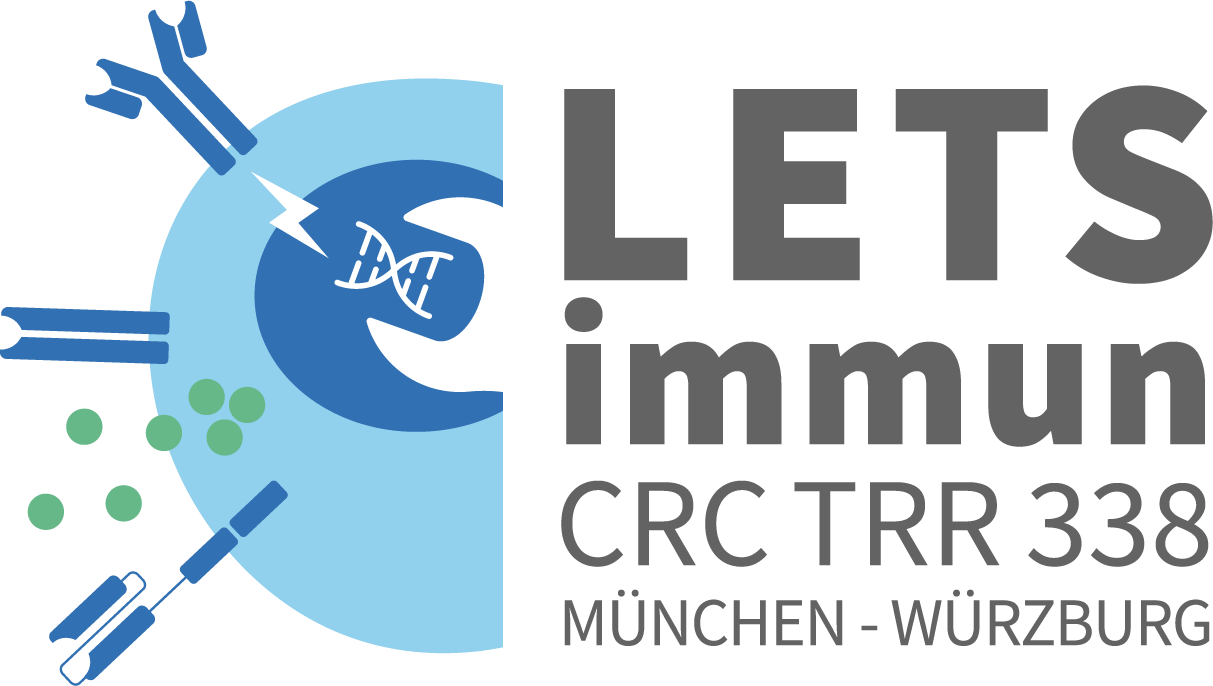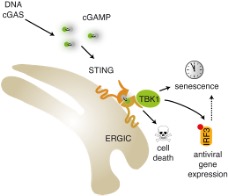Title
Targeting T cell-intrinsic negative regulators to enhance the therapeutic potential of adoptive T cell therapy
Research Area
Immunology
Project Summary
The therapeutic potential of adoptive T cell transfer to fight cancer is unprecedented. While the use of chimeric antigen-receptor T cells (CAR-T cells) is restricted to surface antigens, engineering the endogenous TCR is a promising approach to extend the spectrum of targetable tumor-antigens. Yet, the use of engineered TCRs is limited by their affinity to their cognate antigen, as many potential cancer-related antigens are of self-origin and therefore high affinity T cells specific for these antigens are eliminated by tolerance mechanisms.
Project-Related Publications
Ablasser, A., Goldeck, M., Cavlar, T., Deimling, T., Witte, G., Rohl, I., Hopfner, K.P., Ludwig, J., and Hornung, V. (2013a). cGAS produces a 2′-5′-linked cyclic dinucleotide second messenger that activates STING. Nature 498, 380-384.
Ablasser, A., Schmid-Burgk, J.L., Hemmerling, I., Horvath, G.L., Schmidt, T., Latz, E., and Hornung, V. (2013b). Cell intrinsic immunity spreads to bystander cells via the intercellular transfer of cGAMP. Nature 503, 530-534.
Gaidt, M.M., Ebert, T.S., Chauhan, D., Ramshorn, K., Pinci, F., Zuber, S., O’Duill, F., Schmid-Burgk, J.L., Hoss, F., Buhmann, R., Wittmann, G., Latz, E., Subklewe, M., and Hornung, V. (2017). The DNA Inflammasome in Human Myeloid Cells Is Initiated by a STING-Cell Death Program Upstream of NLRP3. Cell 171, 1110-1124 e1118.
Hopfner, K.P., and Hornung, V. (2020). Molecular mechanisms and cellular functions of cGAS-STING signalling. Nat Rev Mol Cell Biol.
Linder, A., Bauernfried, S., Cheng, Y., Albanese, M., Jung, C., Keppler, O.T., and Hornung, V. (2020). CARD8 inflam- masome activation triggers pyroptosis in human T cells. EMBO J, e105071.
Michalski, S., de Oliveira Mann, C.C., Stafford, C., Witte, G., Bartho, J., Lammens, K., Hornung, V., Hopfner, K.P. (2020) Structural basis for sequestration and autoinhibition of cGAS by chromatin. Nature in press
Paludan, S.R., Reinert, L.S., and Hornung, V. (2019). DNA-stimulated cell death: implications for host defence, inflamma- tory diseases and cancer. Nat Rev Immunol 19, 141-153.
Pinci, F., Gaidt, M.M., Jung, C., Kuut, G., Jackson, M.A., Bauernfried, S., and Hornung, V. (2020). C-tag TNF: a reporter system to study TNF shedding. J Biol Chem in press
Schmid-Burgk, J.L., Chauhan, D., Schmidt, T., Ebert, T.S., Reinhardt, J., Endl, E., and Hornung, V. (2016). A Genome- wide CRISPR (Clustered Regularly Interspaced Short Palindromic Repeats) Screen Identifies NEK7 as an Essential Com- ponent of NLRP3 Inflammasome Activation. J Biol Chem 291, 103-109.
Schmid-Burgk, J.L., Schmidt, T., Gaidt, M.M., Pelka, K., Latz, E., Ebert, T.S., and Hornung, V. (2014). OutKnocker: a web tool for rapid and simple genotyping of designer nuclease edited cell lines. Genome Res 24, 1719-1723.

